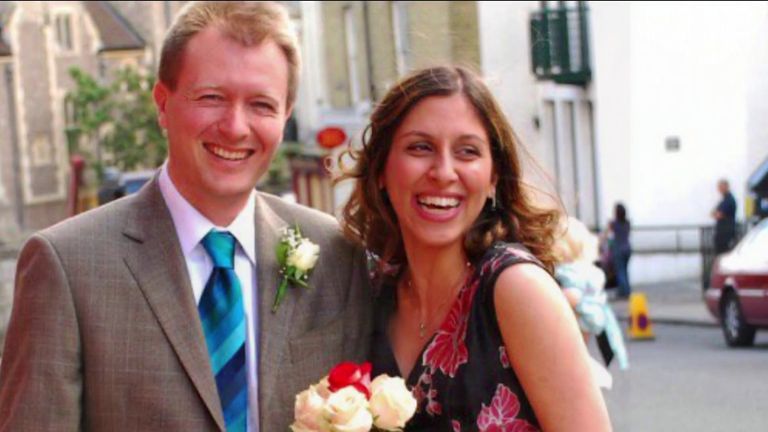After years of diplomatic efforts, a deal has been agreed that will see dual British-Iranian nationals Nazanin Zaghari-Ratcliffe and Anoosheh Ashoori return to the UK later today.
A third dual national, Morad Tahbaz, will be released from prison in Iran on furlough.
At the heart of the agreement was the settlement of a 40-year debt, with a transaction from the UK government to Iran of £393.8 million.
The exact details of the agreement are being kept confidential, but it is understood the payment was not made in cash terms, and the funds will be restricted for use for humanitarian purposes.
Nazanin Zaghari-Ratcliffe to be reunited with her family – live updates
Why did the UK owe Iran nearly £400 million?
Following the 1979 Islamic revolution in Iran the British government cancelled an order for 1,500 Chieftan tanks and armoured vehicles.
The order was being handled by what was then the MOD’s arms-trading subsidiary – International Military Services (IMS). The order had already been paid for when the order was cancelled – resulting in a debt estimated at around £400 million.
The UK government has long accepted liability for the debt, but ministers have said arriving at a settlement was particularly complicated due to the economic sanctions imposed on Iran.
Last November foreign office minister James Cleverley told MPs: “The UK government recognise that we have a duty to legally repay this debt and we continue to explore all legal options to resolve this 40-year-old case.”
But Nazanin’s husband, Richard Ratcliffe, has been highly critical of what he believed was the government’s reticence to do a deal – accusing ministers of being “too timid” during his hunger strike outside the Foreign Office last year.
Why has the debt been paid now?
Officials insist the release of Mrs Zaghari-Ratcliffe and Mr Ashoori and the settlement of the IMS debt were two separate bilateral disagreements which have been resolved in parallel.
After a significant number of meetings between Iranian and UK negotiators, with the assistance from Omani officials, it is understood an agreement was reached on a means of transferring funds.
Foreign Secretary Liz Truss said: “The IMS debt has been settled in full compliance with UK and international sanctions and all legal obligations. These funds will be ring-fenced solely for the purchase of humanitarian goods.”
There has been speculation that this could involve the transfer of medical and aid resources, but there has been no official confirmation of the nature of the transaction.
Given Russia’s invasion of Ukraine, and Prime Minister Boris Johnson’s visit to the Gulf this week, there has been further speculation that the wider geopolitical situation could be connected to the timing of the agreement.
However, officials have pushed back on this suggestion. While they acknowledge the crisis in Ukraine has had an impact on negotiations in Geneva around the Iran nuclear deal – of which Russia is a signatory – they say the issue of the IMS debt and dual national prisoners have not been connected to recent events.
How was agreement reached?
Since Mrs Zaghari-Ratcliffe was first arrested by Iranian authorities, there have been three prime ministers and five foreign secretaries – with the case, and those of other dual nationals, requiring intensive diplomatic effort and consular work to support the families.
According to officials, a meeting in New York last September between Foreign Secretary Liz Truss and her Iraninan counterpart Hossein Amir-Abdollahian was crucial to starting a process which led to today’s agreement.
In what was the first in-person meeting between the foreign ministers of the UK and Iran in three years, it is understood they agreed to attempt to resolve the issue of the IMS debt and the imprisonment of dual nationals in parallel.
A team of high level UK negotiators were dispatched to Iran the following month.
Omani assistance in brokering intensified negotiations between the UK and Iran was then confirmed during a meeting of ministers from Gulf states held at the foreign secretary’s grace-and-favour residence of Chevening last December.
During a visit to Muscat last month Ms Truss met Mr Amir-Adbdollahian again. It is understood a final round of negotiations took place in the Omani capital Muscat shortly after.











